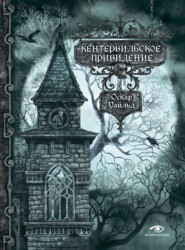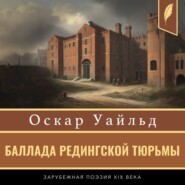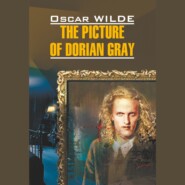По всем вопросам обращайтесь на: info@litportal.ru
(©) 2003-2024.
✖
The Happy Prince and Other Tales
Настройки чтения
Размер шрифта
Высота строк
Поля
“He must have a truly romantic nature,” said the Catherine Wheel, “for he weeps when there is nothing at all to weep about;” and she heaved a deep sigh and thought about the deal box.
But the Roman Candle and the Bengal Light were quite indignant, and kept saying, “Humbug! humbug!” at the top of their voices. They were extremely practical, and whenever they objected to anything they called it humbug.
Then the moon rose like a wonderful silver shield; and the stars began to shine, and a sound of music came from the palace.
The Prince and Princess were leading the dance. They danced so beautifully that the tall white lilies peeped in at the window and watched them, and the great red poppies nodded their heads and beat time.
Then ten o’clock struck, and then eleven, and then twelve, and at the last stroke of midnight every one came out on the terrace, and the King sent for the Royal Pyrotechnist.
“Let the fireworks begin,” said the King; and the Royal Pyrotechnist made a low bow, and marched down to the end of the garden. He had six attendants with him, each of whom carried a lighted torch at the end of a long pole.
It was certainly a magnificent display.
Whizz! Whizz! went the Catherine Wheel, as she spun round and round. Boom! Boom! went the Roman Candle. Then the Squibs danced all over the place, and the Bengal Lights made everything look scarlet. “Good-bye,” cried the Fire-balloon as he soared away, dropping tiny blue sparks. Bang! Bang! answered the Crackers, who were enjoying themselves immensely. Every one was a great success except the Remarkable Rocket. He was so damp with crying that he could not go off at all. The best thing in him was the gunpowder, and that was so wet with tears that it was of no use. All his poor relations, to whom he would never speak, except with a sneer, shot up into the sky like wonderful golden flowers with blossoms of fire. Huzza! Huzza! cried the Court; and the little Princess laughed with pleasure.
“I suppose they are reserving me for some grand occasion,” said the Rocket; “no doubt that is what it means,” and he looked more supercilious than ever.
The next day the workmen came to put everything tidy. “This is evidently a deputation,” said the Rocket; “I will receive them with becoming dignity”: so he put his nose in the air, and began to frown severely as if he were thinking about some very important subject. But they took no notice of him at all till they were just going away. Then one of them caught sight of him. “Hallo!” he cried, “what a bad rocket!” and he threw him over the wall into the ditch.
“Bad Rocket? Bad Rocket?” he said, as he whirled through the air; “impossible! Grand Rocket, that is what the man said. Bad and Grand sound very much the same, indeed they often are the same;” and he fell into the mud.
“It is not comfortable here,” he remarked, “but no doubt it is some fashionable watering-place, and they have sent me away to recruit my health. My nerves are certainly very much shattered, and I require rest.”
Then a little Frog, with bright jewelled eyes, and a green mottled coat, swam up to him.
“A new arrival, I see!” said the Frog. “Well, after all there is nothing like mud. Give me rainy weather and a ditch, and I am quite happy. Do you think it will be a wet afternoon? I am sure I hope so, but the sky is quite blue and cloudless. What a pity!”
“Ahem! ahem!” said the Rocket, and he began to cough.
“What a delightful voice you have!” cried the Frog. “Really it is quite like a croak, and croaking is of course the most musical sound in the world. You will hear our glee-club this evening. We sit in the old duck pond close by the farmer’s house, and as soon as the moon rises we begin. It is so entrancing that everybody lies awake to listen to us. In fact, it was only yesterday that I heard the farmer’s wife say to her mother that she could not get a wink of sleep at night on account of us. It is most gratifying to find oneself so popular.”
“Ahem! ahem!” said the Rocket angrily. He was very much annoyed that he could not get a word in.
“A delightful voice, certainly,” continued the Frog; “I hope you will come over to the duck-pond. I am off to look for my daughters. I have six beautiful daughters, and I am so afraid the Pike may meet them. He is a perfect monster, and would have no hesitation in breakfasting off them. Well, good-bye: I have enjoyed our conversation very much, I assure you.”
“Conversation, indeed!” said the Rocket. “You have talked the whole time yourself. That is not conversation.”
“Somebody must listen,” answered the Frog, “and I like to do all the talking myself. It saves time, and prevents arguments.”
“But I like arguments,” said the Rocket.
“I hope not,” said the Frog complacently. “Arguments are extremely vulgar, for everybody in good society holds exactly the same opinions. Good-bye a second time; I see my daughters in the distance;” and the little Frog swam away.
“You are a very irritating person,” said the Rocket, “and very ill-bred. I hate people who talk about themselves, as you do, when one wants to talk about oneself, as I do. It is what I call selfishness, and selfishness is a most detestable thing, especially to any one of my temperament, for I am well known for my sympathetic nature. In fact, you should take example by me; you could not possibly have a better model. Now that you have the chance you had better avail yourself of it, for I am going back to Court almost immediately. I am a great favourite at Court; in fact, the Prince and Princess were married yesterday in my honour. Of course you know nothing of these matters, for you are a provincial.”
“There is no good talking to him,” said a dragon-fly, who was sitting on the top of a large brown bulrush; “no good at all, for he has gone away.”
“Well, that is his loss, not mine,” answered the Rocket. “I am not going to stop talking to him merely because he pays no attention. I like hearing myself talk. It is one of my greatest pleasures. I often have long conversations all by myself, and I am so clever that sometimes I don’t understand a single word of what I am saying.”
“Then you should certainly lecture on Philosophy,” said the Dragon-fly, and he spread a pair of lovely gauze wings and soared away into the sky.
“How very silly of him not to stay here!” said the Rocket. “I am sure that he has not often got such a chance of improving his mind. However, I don’t care a bit. Genius like mine is sure to be appreciated some day;” and he sank down a little deeper into the mud.
After some time a large White Duck swam up to him. She had yellow legs, and webbed feet, and was considered a great beauty on account of her waddle.
“Quack, quack, quack,” she said. “What a curious shape you are! May I ask were you born like that, or is it the result of an accident?”
“It is quite evident that you have always lived in the country,” answered the Rocket, “otherwise you would know who I am. However, I excuse your ignorance. It would be unfair to expect other people to be as remarkable as oneself. You will no doubt be surprised to hear that I can fly up into the sky, and come down in a shower of golden rain.”
“I don’t think much of that,” said the Duck, “as I cannot see what use it is to any one. Now, if you could plough the fields like the ox, or draw a cart like the horse, or look after the sheep like the collie-dog, that would be something.”
“My good creature,” cried the Rocket in a very haughty tone of voice, “I see that you belong to the lower orders. A person of my position is never useful. We have certain accomplishments, and that is more than sufficient. I have no sympathy myself with industry of any kind, least of all with such industries as you seem to recommend. Indeed, I have always been of opinion that hard work is simply the refuge of people who have nothing whatever to do.”
“Well, well,” said the Duck, who was of a very peaceable disposition, and never quarrelled with any one, “everybody has different tastes. I hope, at any rate, that you are going to take up your residence here.”
“Oh! dear no,” cried the Rocket. “I am merely a visitor, a distinguished visitor. The fact is that I find this place rather tedious. There is neither society here, nor solitude. In fact, it is essentially suburban. I shall probably go back to Court, for I know that I am destined to make a sensation in the world.”
“I had thoughts of entering public life once myself,” remarked the Duck; “there are so many things that need reforming. Indeed, I took the chair at a meeting some time ago, and we passed resolutions condemning everything that we did not like. However, they did not seem to have much effect. Now I go in for domesticity, and look after my family.”
“I am made for public life,” said the Rocket, “and so are all my relations, even the humblest of them. Whenever we appear we excite great attention. I have not actually appeared myself, but when I do so it will be a magnificent sight. As for domesticity, it ages one rapidly, and distracts one’s mind from higher things.”
“Ah! the higher things of life, how fine they are!” said the Duck; “and that reminds me how hungry I feel:” and she swam away down the stream, saying, “Quack, quack, quack.”
“Come back! come back!” screamed the Rocket, “I have a great deal to say to you;” but the Duck paid no attention to him. “I am glad that she has gone,” he said to himself, “she has a decidedly middle-class mind;” and he sank a little deeper still into the mud, and began to think about the loneliness of genius, when suddenly two little boys in white smocks came running down the bank, with a kettle and some faggots.
“This must be the deputation,” said the Rocket, and he tried to look very dignified.
“Hallo!” cried one of the boys, “look at this old stick! I wonder how it came here;” and he picked the Rocket out of the ditch.
“Old Stick!” said the Rocket, “impossible! Gold Stick, that is what he said. Gold Stick is very complimentary. In fact, he mistakes me for one of the Court dignitaries!”
“Let us put it into the fire!” said the other boy, “it will help to boil the kettle.”
So they piled the faggots together, and put the Rocket on top, and lit the fire.
“This is magnificent,” cried the Rocket, “they are going to let me off in broad daylight, so that everyone can see me.”
“We will go to sleep now,” they said, “and when we wake up the kettle will be boiled;” and they lay down on the grass, and shut their eyes.
The Rocket was very damp, so he took a long time to burn. At last, however, the fire caught him.
“Now I am going off!” he cried, and he made himself very stiff and straight. “I know I shall go much higher than the stars, much higher than the moon, much higher than the sun. In fact, I shall go so high that – ”
Fizz! Fizz! Fizz! and he went straight up into the air.
“Delightful,” he cried, “I shall go on like this for ever. What a success I am!”
But nobody saw him.

















